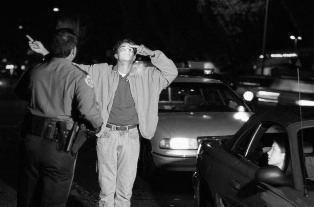24 Hour Sobriety Program
Washington State recently enacted a new set of DUI laws which include a new “24 Hour Sobriety Program” for multiple offenders. RCW 36.28a.330(5) defines the program as:
“24/7 sobriety program” means a twenty-four hour and seven day a week sobriety program in which a participant submits to the testing of the participant’s blood, breath, urine, or other bodily substances in order to determine the presence of alcohol, marijuana, or any controlled substance in the participant’s body.
This program is meant to more closely monitor DUI defendants while they are awaiting their next court date. Recent high profile DUI deaths have led to this more strict supervision by the courts. So far, there is no uniform program in Washington. Different counties have different programs and different judges in the same courthouse favor different conditions.
Types of Monitoring
Here in Clark County the most common form of alcohol monitoring include:
- SCRAM Bracelet
- Antabuse
- Random Urinary Analysis
- Random Breath Tests
SCRAM bracelets are electronic devices that are worn around the ankle and can detect a person’s alcohol use and monitor their location. These devices can be relatively convenient but they are expensive. The cost, depending on who you rent the equipment from, can be anywhere from $8 – $15 dollars a day.
Antabuse is medication that prevents an individual from consuming alcohol. The medication requires a doctor’s prescription and must be taken in the presence of a pharmacist three times a week. If one attempts to consume alcohol on this medication they feel violently ill immediately.
Random Urine Tests are usually conducted at the county Sheriff’s Office or by the Corrections Department. A typical UA uses an Ethyl Gluconoride (EGT) test , which can detect alcohol consumption up to 3-5 days, depending on several factors such as body mass, prior to the test. These tests can be expensive.
Breath Tests can detect alcohol consumption from around 24 hours prior to the test, again depending on various factors. BAs are usually ordered in combination with UAs.
The 24 Hour law also states that defendants must pay the costs of alcohol monitoring and a court cannot reduce the cost. Failure to comply with these conditions can lead to the judge revoking bail and taking you into custody. The cost of this monitoring can be very expensive.

